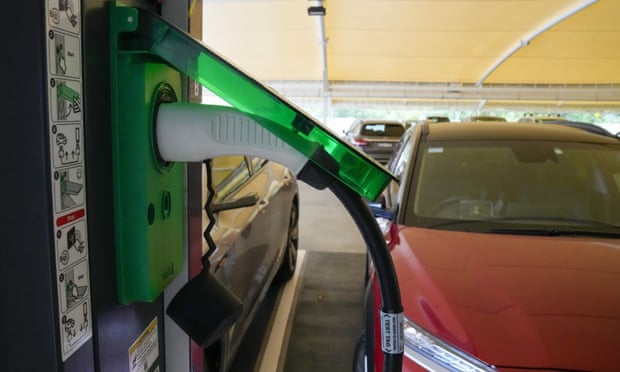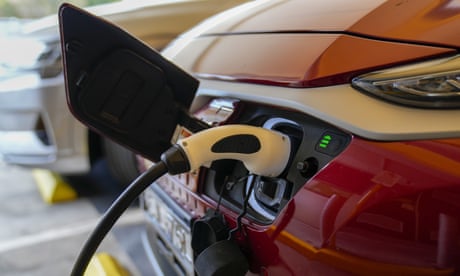Extract from The Guardian
Announcement at national electric vehicle summit comes as climate change minister seeks input on national EV strategy.

Fri 19 Aug 2022 03.30 AEST
Last modified on Fri 19 Aug 2022 07.52 AESTThe customer-owned Bank Australia will announce the self-imposed ban at a national EV summit in Canberra on Friday, arguing it is a responsible step to ensure its lending practices did not “lock our customers into higher carbon emissions and increasingly expensive running costs”.
The bank’s chief impact officer, Sasha Courville, said the bank, which has 185,000 customers, would continue to fund loans for second-hand cars with internal combustion engines as it recognised not everyone would be able to afford an EV in three years.
But she said the announcement would send a message that “if you’re considering buying a new car you should think seriously about an electric vehicle, both for its impact on the climate and for its lifetime cost savings”.
“We’ve chosen 2025 because the change to electric vehicles needs to happen quickly and we believe it can with the right supporting policies in place to bring a greater range of more affordable electric vehicles to Australia,” she said.
The climate change minister, Chris Bowen, will tell the summit the Albanese government has written to the states and territories inviting them to work together on a national EV strategy, including considering the introduction of vehicle fuel efficiency standards to drive the uptake of cleaner cars.
Fuel efficiency standards set an emissions target for auto manufacturers averaged across all the cars they sell, measured in grams of CO2 released per kilometre driven. Targets are gradually reduced to zero, when they effectively become a ban on new fossil fuel cars. They are in place across about 80% of the global light vehicle market.
Excerpts of Bowen’s speech released to media ahead of the event said the strategy would aim to improve affordability and choice by expanding the local EV market. Only 2% of new cars sold in Australia last year were low-emissions vehicles, compared with 9% globally.
In the extract, Bowen pulled up short of promising mandatory fuel efficiency standards, but said it was time for “an orderly and sensible discussion” about whether they could help improve the supply of EVs and cut both emissions and the cost of running a car. He said Australia was the only OECD country other than Russia to not have introduced vehicle carbon dioxide standards or have them in development.
“It means consumers aren’t getting the choice available internationally and, as the world moves towards more efficient and cleaner vehicles, we risk becoming a dumping ground for older technology which can’t be sold in other markets.”
The summit has been organised by Boundless, a new climate-solutions focused not-for-profit organisation created by the tech billionaire Mike Cannon-Brookes, with the Electric Vehicle Council, the Smart Energy Council and the Australia Institute. Its main focus will be how to design fuel efficiency standards.
According to a recent report by the Australia Institute, strong standards would have saved the country $5.9bn if they had been introduced six years ago, when they were recommended by a ministerial forum.
The Greens called on the government to commit to implementing them. The party’s deputy leader, Mehreen Faruqi, said the country needed “proper EV discounts” of up to $10,000 and support for local manufacturing.
Under Greens policy, new petrol and diesel cars would be banned from 2030. “We need policies to push out old, dirty and obsolete vehicles and policies to bring in clean, better, more efficient electric vehicles and we need the infrastructure to power up Australia’s new electric vehicles and our vehicle manufacturing industry,” Faruqi said.
Bowen and the transport minister, Catherine King, said they would release an EV strategy discussion paper shortly.

No comments:
Post a Comment